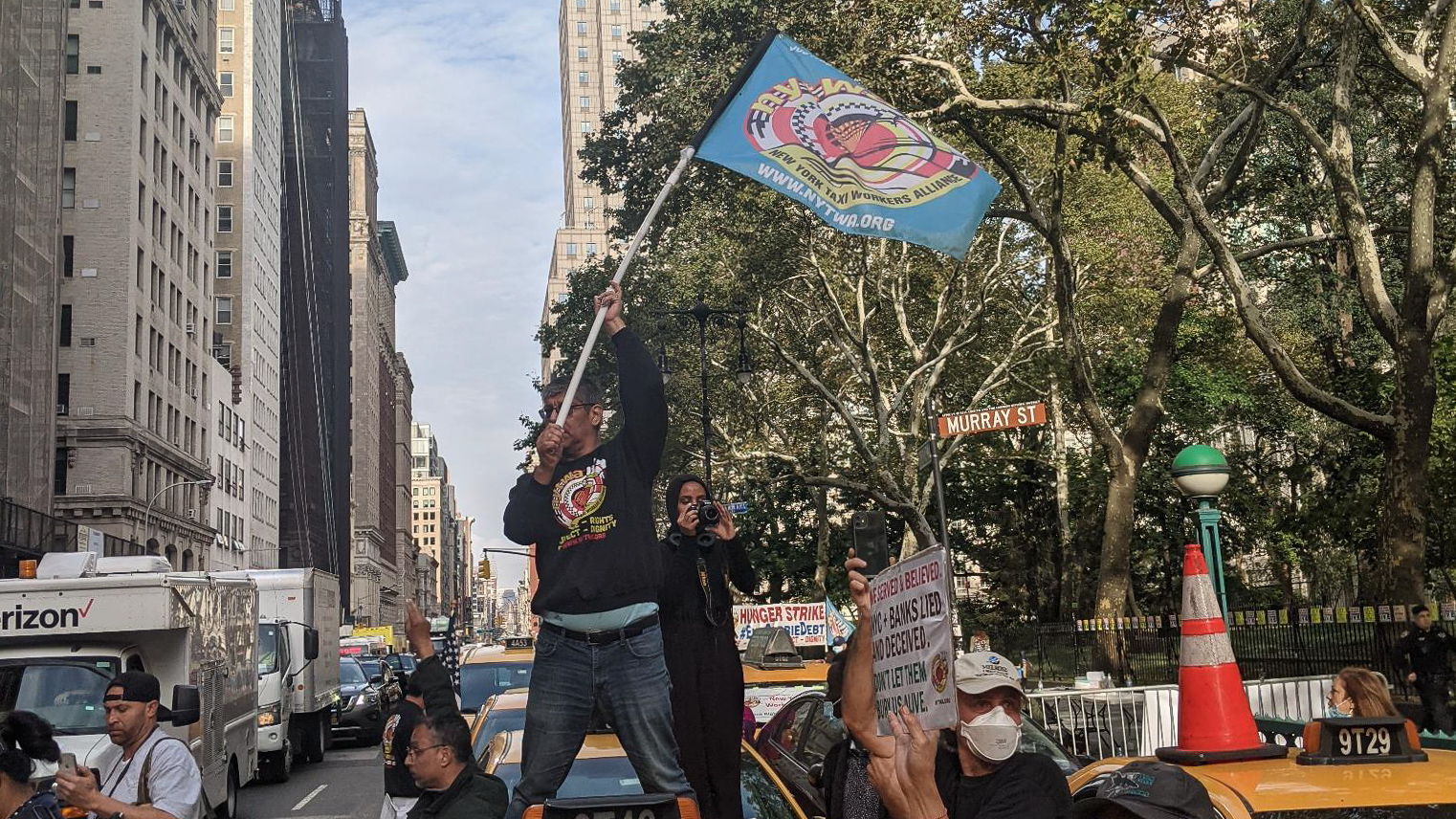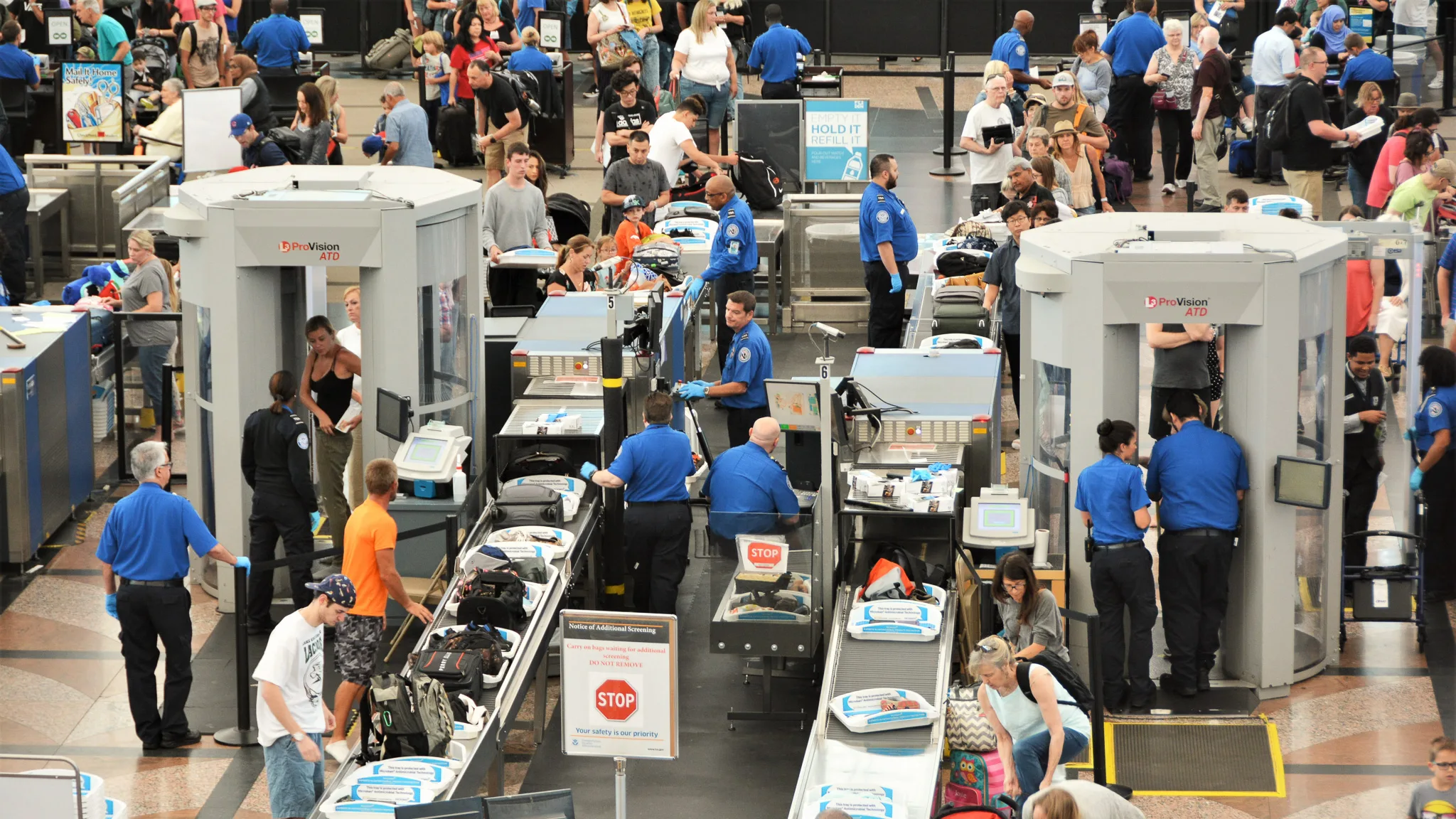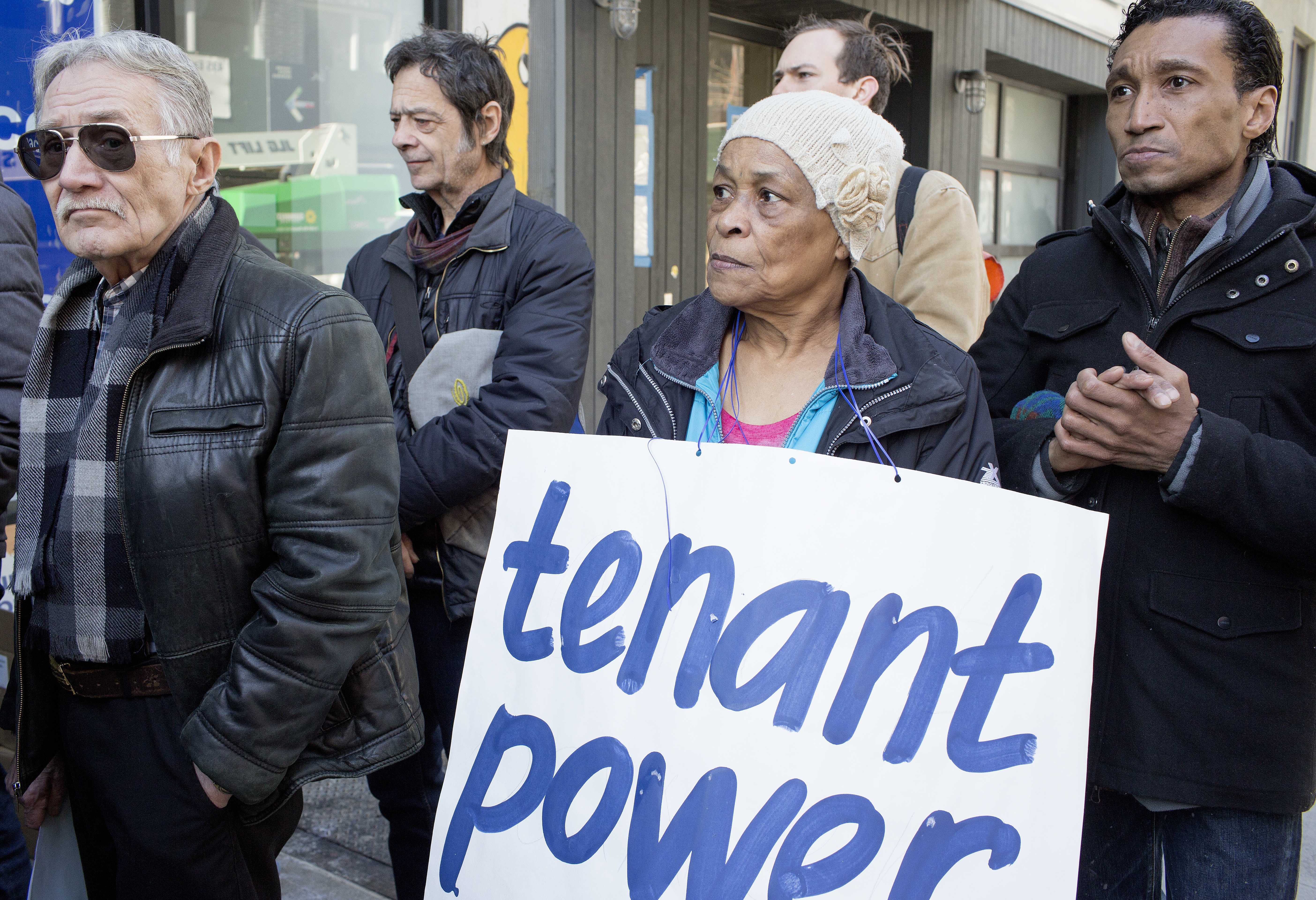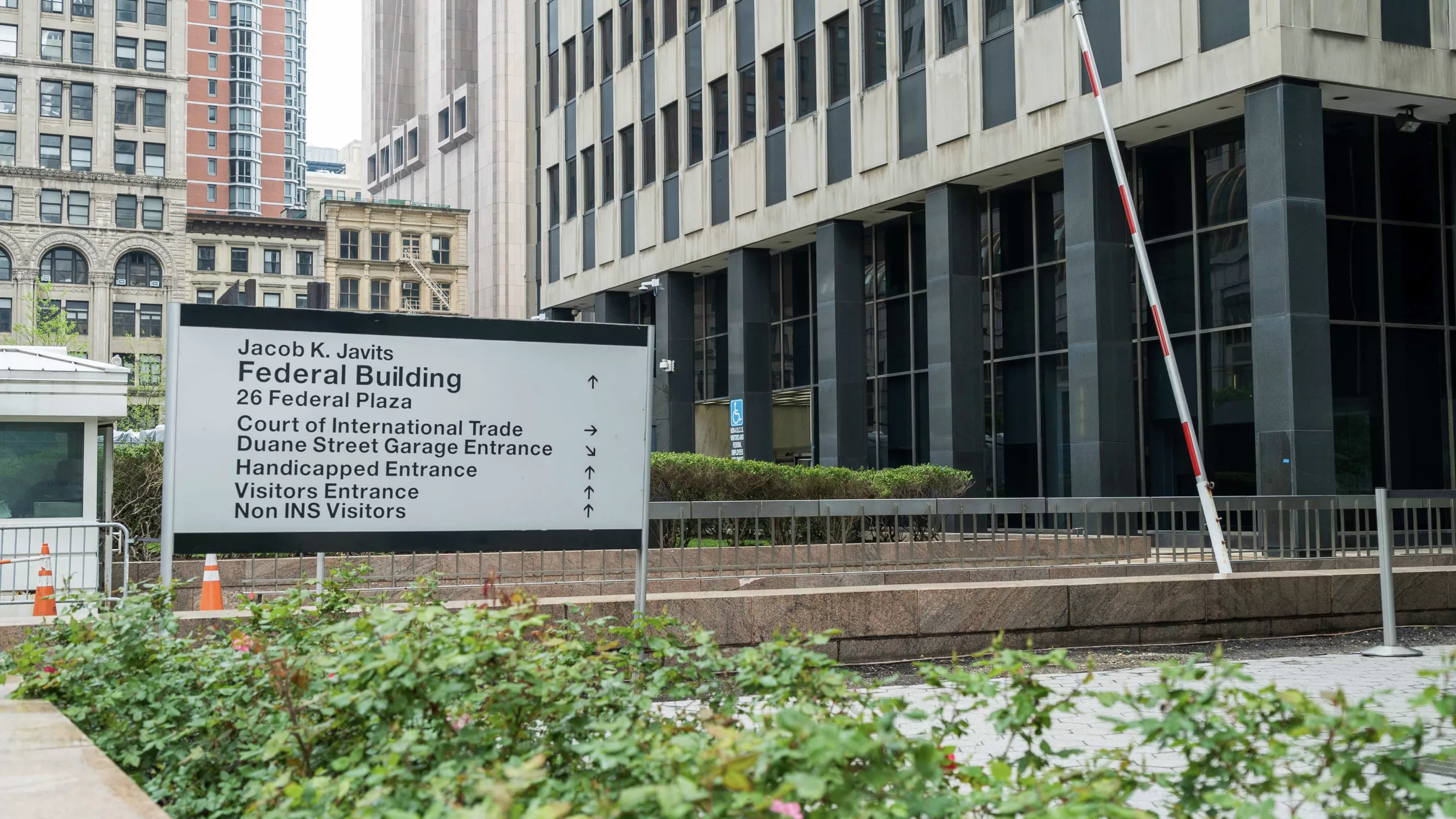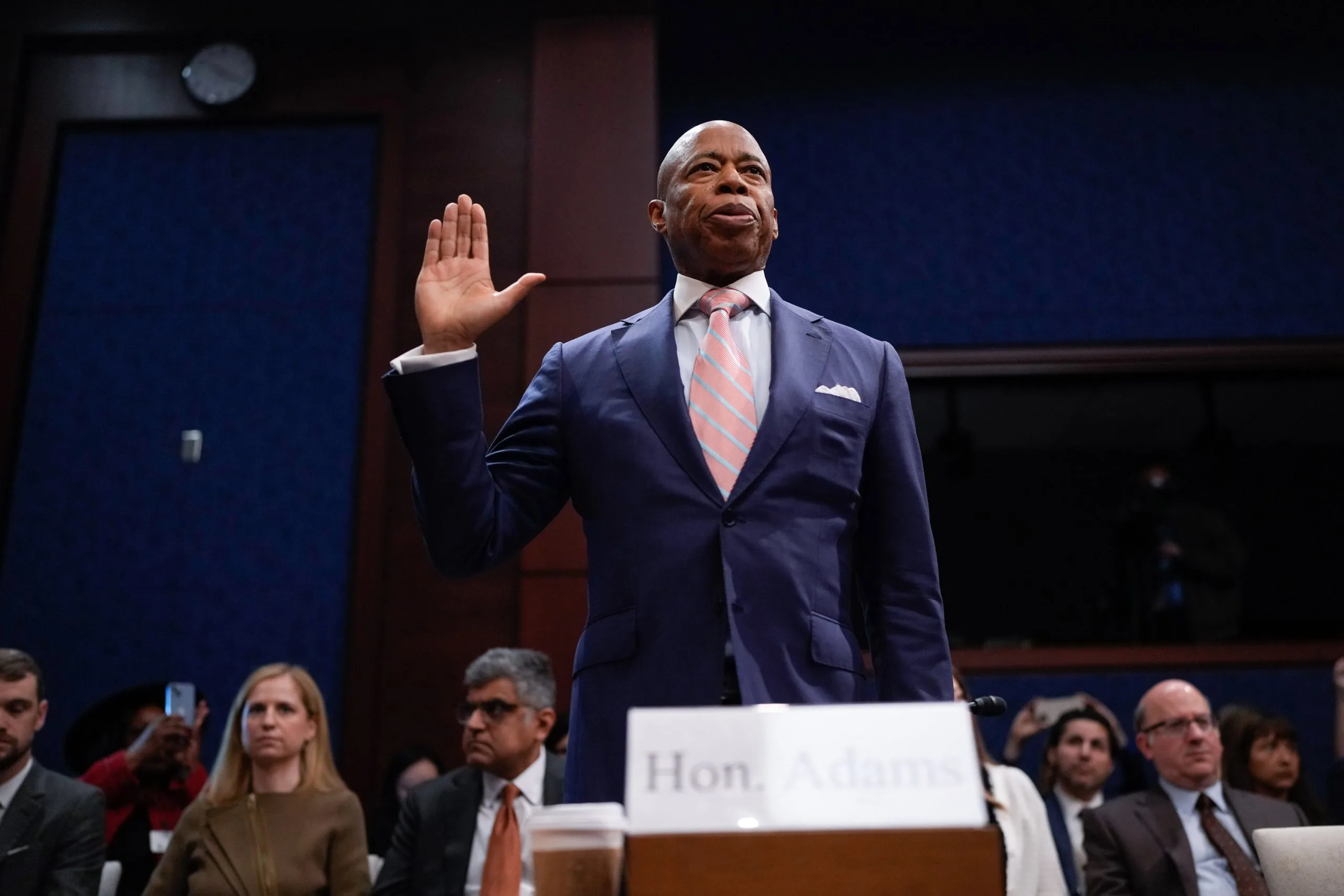After a grueling two-week-long taxi drivers hunger strike and a nearly two-month-long encampment outside New York’s legislative center, cabbies finally have a reason to celebrate.
Yesterday afternoon, outside City Hall, dozens of yellow cab drivers and owners and their supporters danced in jubilation after receiving the news that the de Blasio administration reached an agreement with the 25,000-member strong New York Taxi Workers Alliance (NYTWA). Both parties agreed to a taxi medallion debt restructuring plan, which would provide affordable rates to drivers as well as ensuring a city-funded guarantee on the principal and interest for medallion loans.
For Victor Salazar, an immigrant from Ecuador and cab driver since 1993, this announcement will allow him to come out from under the mountain of debt he was living under. He could finally get back to work in the City he loves with a load off his shoulders.
“This is a much better deal than what the city was offering us before this great victory the New York yellow cab drivers have achieved,” he said. “This means we can take our lives back with a peace of mind so that we can serve the City of New York.”
“After a long and painful journey, we made it home to victory,” said Bhairavi Desai, Executive Director of New York Taxi Workers Alliance. “Today marks a new dawn, a new beginning for a workforce that has struggled through so much crisis and loss. Today, we can say owner-drivers have won real debt relief and can begin to get their lives back. Drivers will no longer be at risk of losing their homes, and no longer be held captive to debt beyond their lifetime.”
Since 2014, New York yellow cab drivers have been in a state of crisis that has led to at least nine drivers committing suicide. In 2004, to generate revenue, Michael Bloomberg’s administration increased the number of medallions the City would sell at auction.
Through 2014, the City sold more than 1,000 new medallions at prices that they inflated by 500 percent, rising from $200,000 in 2004 to $1 million by 2014.
Also Read: Immigrant Workers on Strike for Higher Wages at Catsimatidis’ Oil Company
While the yellow cab industry was tightly regulated, with the City limiting the number of yellow cabs available to about 13,500, the City took a laissez-faire approach towards rideshare companies like Uber and Lyft, allowing them to flood the same market. Yellow cabs revenue declined by 36 percent and, as of September, the value of the medallions have dropped to about $80,000. Yet, cabbies were still saddled with debt and trapped in predatory lending agreements for those very same medallions that became virtually worthless.
Under the agreement negotiated by the City, the NYTWA, Marblegate Asset Management, which is the largest medallion lender, and Senator Charles Schumer, Marblegate agreed to restructure outstanding loans to a principal balance of $200,000, which will be constituted as $170,000 guaranteed loans, plus a City grant of $30,000.
The terms of the new loans will include a 5 percent interest rate and a 20-year, fully amortizing term. The restructuring will cap debt service payments at about $1,122 per month for eligible medallion owners. Most importantly, and the key demand of the NYTWA, the City agreed to provide funding for a guarantee on the principal and interest for the loans and will work with all other medallion lenders to achieve the same terms.
“Taxi workers have worked tirelessly to make New York City the most vibrant city in the world, and we refuse to leave them behind,” said Mayor Bill de Blasio in a statement. “I’m proud to have worked with Senator Schumer, NYTWA, and Marblegate to reach an equitable, sustainable solution that builds on the success we’ve achieved in reducing debt burdens for the hard-working drivers who keep our city moving.”
The Mayor’s announcement is a swift reversal in policy by his office. Initially, in September, the admiration had offered cabbies in medallion debt, a $65 million grant relief program that allowed for $200,000 in debt forgiveness and would see monthly payments reduced to $1,500 per month or less. Since the program was first rolled out, it had already distributed $16 million in partial debt forgiveness to 102 drivers and an additional 1,000 others were in various stages of renegotiating their loans under the program.
For over a year members of the NYTWA had engaged in several acts of direct action, including shutting down the Brooklyn Bridge to make their voices heard. After those actions did not accomplish the association’s goals, on September 19th, the NYTWA, launched a round-the-clock sit-in outside city hall. On October 18th, the workers decided to escalate their struggle and launched a taxi drivers hunger strike.
Dipnn Das, a 50-year-old immigrant from Bangladesh, routinely worked 14 hour days so he could save enough to buy his own medallion. The job was exhausting. For him, the biggest challenge was being able to find a bathroom when he needed it. Nevertheless, in 2004, after years of hard work he was finally able to save enough to purchase a medallion.
At first, he had no difficulty paying his monthly mortgage on his medallion. The City was booming and business was good. Yet, as the industry began to evolve with the proliferation of UBER and LYFT he found it difficult to make a living and began to fall behind on his payments for his $300,000 debt.
With the pandemic, his situation became a lot worse. Suffering from chronic liver issues and high blood pressure he was afraid to work. Even if he chose to drive it. Still, despite his poor health, he has no qualms about going on a hunger strike. For him, it was a cause worth dying for.
“I’m not afraid,” he said the day the hunger strike was launched. “I want to die if I don’t have my justice. We are going to fight back.”
With the taxi drivers hunger strike coming to an end, Victor Salazar looks back at the last two months with pride knowing that the sacrifice was worth every drop of sweat, blood, and tears.
“We can live with some respect and dignity. This victory will mean a lot of dignity for families who have been ignored for far too long.”
